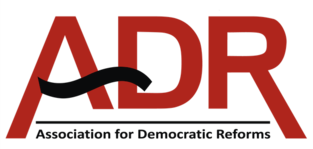Activist have urged the commission to instruct the Centre to suspend all direct and indirect funding to political parties as an interim measure while they remain opposed to being under the RTI scanner.

New Delhi: All the national political parties appear to be on the same page when it comes to thwarting attempts by the Central Information Commission (CIC) to make them submit themselves to scrutiny under the Right to Information Act, which they say would make available to their rivals sensitive information about their funding. On Monday, the Congress, which takes pride in having implemented the Act in 2005, vehemently challenged the powers of the CIC in exercising plenary jurisdiction and claimed that its 2013 order, termed historic by most RTI activists, was “arbitrary and illegal”.
The CIC has issued the order in 2013 based on a petition by RTI activists Subhash Agrawal and Anil Bairwal of the Association for Democratic Reforms (ADR) who had asked for the sources of finance and contributions to six national parties – Congress, BJP, CPI-M, CPI, Nationalist Congress Party (NCP) and Bahujan Samaj Party – be made public. A full bench of the CIC had held that the parties were answerable under the RTI Act as they fulfilled the criteria of being public authorities.
The bench had subsequently directed the president and general secretaries of the six parties to designate central public information officers and appellate authorities at their headquarters, and to comply with and make available on their website the provisions of the mandatory proactive disclosures clauses as per the RTI Act.
K.C. Mittal, secretary in-charge of the All India Congress Committee’s legal department, said an application had been moved to quashing the 2013 order and challenged its competence and jurisdiction. In his argument before the commission, he said, “It has been held that CIC is neither a court nor is competent to exercise plenary jurisdiction. There is no power even to decide upon its jurisdiction or interpret the provisions of the act and the definitions.”
Mittal claimed that the CIC had no adjudicatory powers and that the applicants who filed a petition seeking the disclosure of funding information had not been able to substantiate their argument that political parties were financed by the government. This, he said, made the CIC’s ruling “arbitrary and illegal”.
He also countered the claim that exemptions and concession granted to the parties amounted to financial contributions by a government and said such benefits were also allowed to various organisations, individuals persons and bodies that were not under the purview of the RTI Act.
The political parties have largely refrained from appearing or making submissions before the CIC, but Mittal appeared before the commission as it had issued summons to Congress president Sonia Gandhi for the hearing June 20. The party strongly opposed the summons as the notices to all other parties had been served to their national presidents and general secretaries. Although the counsels for other parties were present during the hearing, only those for the Congress and NCP spoke.
One the same page
Incidentally, since the 2013 order, all the national parties appear to be on the same page when it comes to opposing the CIC’s directions.
A few months after the order was issued in 2013, the Manmohan Singh-led government had observed that terming political parties as public authorities was an “erroneous” conclusion. In fact his government had first considered bringing an ordinance but later decided to amend the RTI Act itself. Interestingly, in the urgency to amend the Act and perhaps for the first time, a secret cabinet note was uploaded by the government.
The national parties chose not to comply with the CIC order, forcing the commission to issue them notices in 2014 seeking responses as to why inquiries should not be initiated against them for non-compliance.
Subsequently, Agrawal and the ADR took the matter to the Supreme Court. In August 2015, the Narendra Modi government submitted that the move to bring the political parties under the RTI Act would have an adverse impact on their internal working and political functioning. In an affidavit filed through the department of personnel and training, the Centre had also submitted that “if political parties are held to be public authorities under [the] RTI Act, it would hamper their smooth internal working, which is not the objective of the RTI Act and was not envisaged by parliament”. Further, the Centre said that political rivals might file RTI applications with malicious intentions, adversely affecting the political functioning of the parties.
Interim measures
Agarwal told The Wire that the case has been progressing gradually in the Supreme Court, and that the states and political parties are yet to make their submissions. Agarwal has also submitted an application to the CIC demanding that the Centre be directed to “suspend all direct and indirect funding” to the political parties as an interim measure since the parties are reluctance to adhere to the order. Agarwal has also demanded immediate suspension of further land allotment at subsidised cost, free voters’ list, free Doordarshan and All India Radio slots and all other government-provided free facilities to political parties.
He has also demanded that the parties should not be allotted any government accommodation and should be asked to vacate existing premises within a stipulated time frame, as well as that buildings constructed by the parties on land provided at subsidised rates be taken over by the government.
Agarwal has also demanded that the Centre be directed to suspend all income tax exemptions on contributions made to and received by the political parties, make the parties submit their fiscal details to Election Commission (EC) for making these public, urge the EC to de-recognise the nearly 2000 non-serious political parties that may not have contested any election in last three years, and urge the EC to issue a time-bound ultimatum to the political parties for their de-recognition in case they do not comply with the CIC’s 2013 order.






